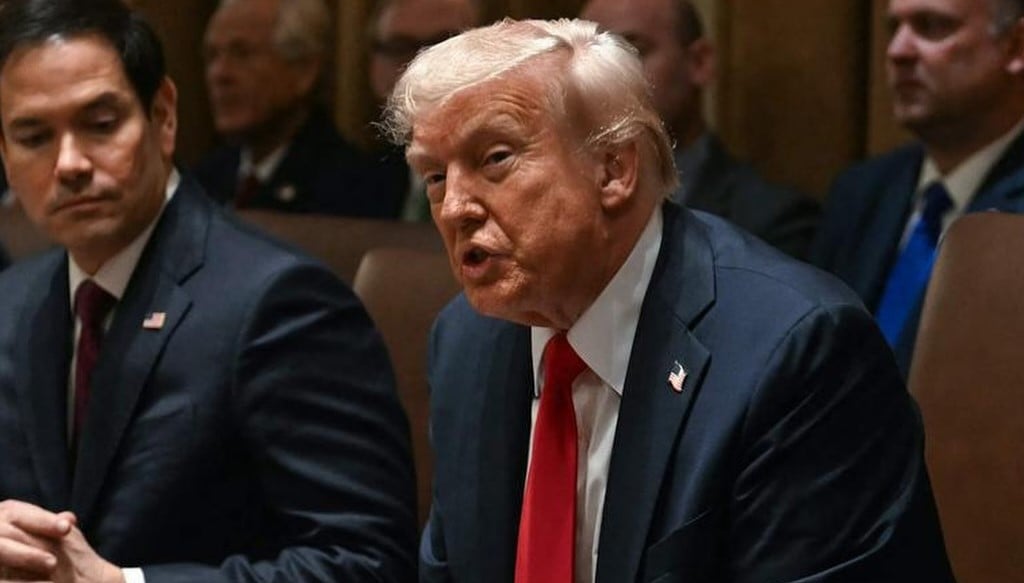President Donald Trump signed an executive order on April 24, 2025, to speed up approval processes for deep-sea mining operations in both U.S. and international waters. This move aims to secure access to critical minerals while reducing dependence on foreign suppliers, particularly China.
The order directs federal agencies including the Departments of Commerce and Interior to expedite permits under the 1980 Deep Seabed Hard Mineral Resources Act. It also creates a fast-track process for mining in areas “beyond national jurisdiction” – a controversial step that bypasses the United Nations-backed International Seabed Authority (ISA).
What’s at Stake
The focus is extracting polymetallic nodules – potato-sized rocks found 4,000-6,000 meters deep on the ocean floor. These nodules contain nickel, cobalt, copper, and manganese – essential components for electric vehicle batteries, electronics, and defense technologies.
The administration projects these resources could add $300 billion to U.S. GDP and create 100,000 jobs over the next decade. The Clarion-Clipperton Zone between Mexico and Hawaii alone contains more nickel, cobalt, and manganese than all land-based reserves combined, according to U.S. Geological Survey estimates.
“The United States has a core national security and economic interest in maintaining leadership in deep-sea science and technology and seabed mineral resources,” Trump stated in the order.
Similar Posts
Industry Response
The deep-sea mining industry welcomed the order. The Metals Company, a prominent firm in the sector, saw its shares jump 40% to a 52-week high of $3.39 after news broke.
“With a stable, transparent, and enforceable regulatory pathway available under existing U.S. law, we look forward to delivering the world’s first commercial nodule project, responsibly and economically,” said Gerard Barron, CEO of The Metals Company, which aims to extract nodules from the Clarion-Clipperton Zone.
Barron blamed an “environmental activist takeover” of the ISA for delays in establishing international rules, leading his company to apply directly to the U.S. government instead. “We have a boat that’s production-ready,” he noted. “We have a means of processing the materials in an allied friendly partner nation. We’re just missing the permit to allow us to begin.”
Environmental Concerns
Environmental organizations have strongly condemned the order. “Fast-tracking deep-sea mining is an environmental disaster in the making. Trump is trying to open one of Earth’s most fragile and least understood ecosystems to reckless industrial exploitation,” said Emily Jeffers, senior attorney at the Center for Biological Diversity.
Scientists warn of several risks:
- Habitat destruction: Mining equipment can physically scar the seabed and destroy unique habitats
- Sediment plumes: Mining stirs up fine sediments that can smother marine life over wide areas
- Biodiversity loss: Many deep-sea species are endemic, slow-growing, and vulnerable to extinction
A study in Nature showed that a seabed area experimentally mined in 1979 had not recovered over 40 years later.
“We think about half the species that live in that area are dependent on the nodules for some part of their development,” said Matthew Gianni, co-founder of the Deep Sea Conservation Coalition.
Lisa Levin, oceanographer at Scripps Institution of Oceanography, cautioned: “If we want to mine the deep sea, we have to be willing to give up those ecosystems.”
International Tensions
The U.S. has not ratified the UN Convention on the Law of the Sea and is not a voting member of the ISA, though it holds observer status. The ISA has been working for years to finalize a “mining code” but has not completed the process.
By issuing permits directly, the U.S. would challenge international governance of deep-sea resources, which are considered the “common heritage of mankind” under international law.
More than 30 countries now support delaying deep-sea mining. An array of automakers and tech companies including BMW, Volkswagen, Volvo, Apple, Google, and Samsung have pledged not to use seabed minerals.
Market Context
No commercial-scale deep-sea mining has begun anywhere yet, partly due to high costs and technological complexity. The executive order instructs agencies to explore using Defense Production Act authorities and the National Defense Stockpile for storing materials derived from seabed nodules.
The economic and environmental stakes of this decision ensure the debate around deep-sea mining will remain heated in the months ahead.



















